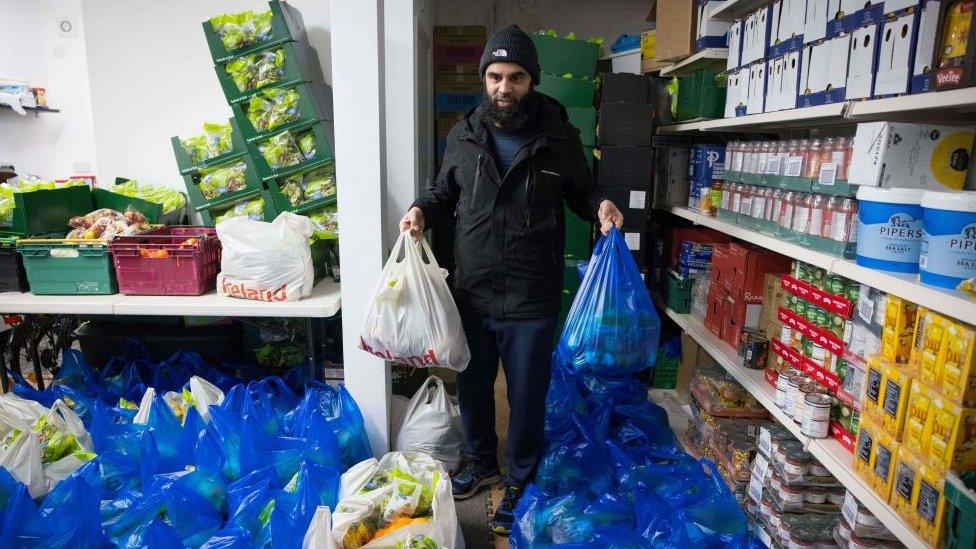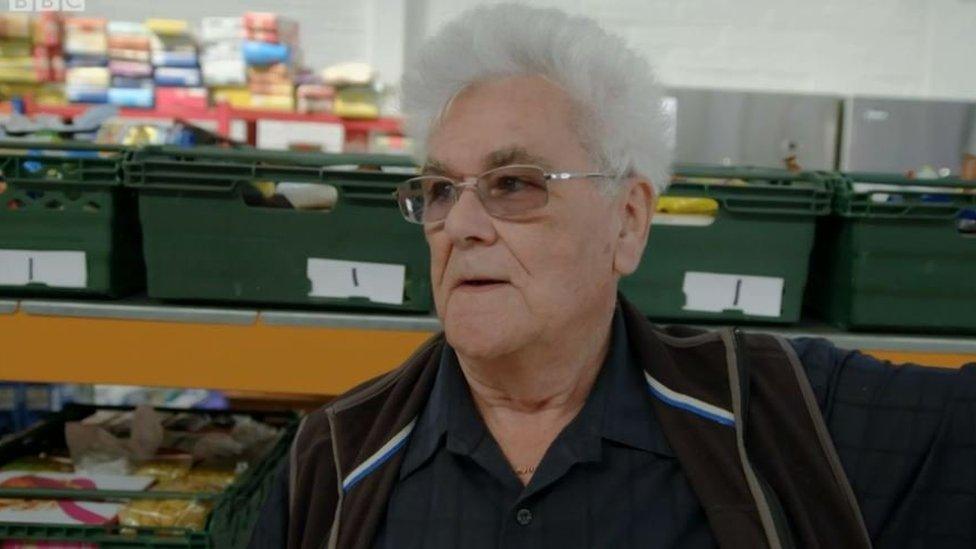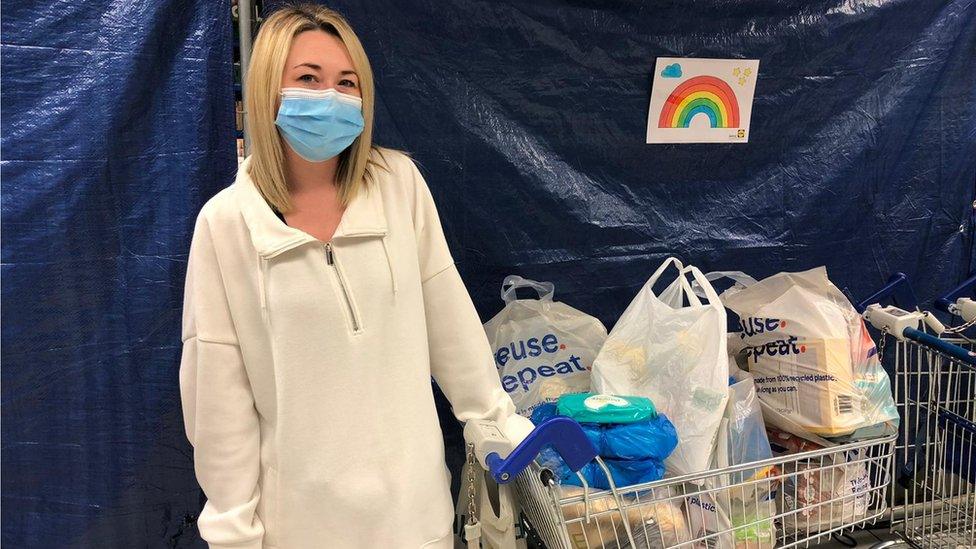Food banks: One parcel given to children in Wales 'every 10 minutes'
- Published
"No-one should face the indignity of food banks"
More than 54,000 food parcels went to children in Wales between April 2020 and March 2021, a charity says - one parcel every 10 minutes.
The Trussell Trust said it provided 145,828 parcels to adults and youngsters but called the figure "the tip of the iceberg".
It said "unprecedented" numbers were being helped by other food providers.
The figures are 8% up on the previous year and 69% up on 2015-16.
The charity is now calling on all candidates standing in May's Senedd election to commit to working to end the need for food banks.
It said the need for emergency food was driven by poverty, with its research showing 94% of people referred to them were destitute - meaning they cannot afford the essentials.

SIGN UP FOR WALES ALERTS: Get extra updates on BBC election coverage

High rates of unemployment and record numbers of redundancies meant more people than ever needed social security to provide a "lifeline to stay afloat", the charity said.
In 2020-21, the parcels were given out by 125 distribution centres operating across Wales.
An emergency food parcel is typically enough for three days.

Food parcels were given to children an average of once every 10 minutes
During the pandemic, food banks also gave out seven-day parcels.
The Trussell Trust wants all political parties to work to end the need for food banks and to develop a plan to do that if elected.
Wales operations manager Susan Lloyd-Selby said no-one "should face the indignity of needing emergency food".
"This is not right but we know we can build a better future," she said.
"This pandemic has shown the unexpected can hit suddenly, but we know when we push for change, united by our desire for justice and compassion, the government has to listen and act.
"We've welcomed an increased take-up of the discretionary assistance fund along with extended free school meal provision, but we must go further to ensure we all have enough money for essentials."
The discretionary assistance fund has been offered during the pandemic to help those in hardship.
Ms Lloyd-Selby urged voters to write to Senedd candidates asking them to commit to working to end the need for food banks.

WALES ELECTION: THE BASICS
What's happening? On 6 May, people will vote to elect 60 Members of the Senedd (MSs). The party that can command the support of a majority of MSs will form the Welsh government. Find out more here.
What powers does the Senedd have? MSs pass laws on aspects of life in Wales such as health, education and transport - and have some tax powers.

The Independent Food Aid Network, which represents more than 500 food banks, said its members were also seeing a "relentless need" for help.
Co-ordinator Sabine Goodwin said: "It's the responsibility of governments to stop hunger from happening in the first place so that everyone is able to afford to buy food and other essentials."
What do the political parties say?
Welsh Labour said it would create new green jobs and "bear down on economic inequality wherever it exists".
It promised to give all under-25s a job, training or self-employment, would build 20,000 low-carbon social homes to rent and set up an educational catch-up programme to ensure the pandemic "leaves nobody behind".
The Welsh Conservatives said the party was "committed to ending poverty and supporting the lowest-paid families".
It said it would build a stronger economy with a "national mission" to create 65,000 new jobs.
A spokesman said the party would help families get back on their feet with a "roadmap out of lockdown and a two-year council tax freeze."
Plaid Cymru said it would end poverty and child hunger by expanding free school meals, offering them to all primary pupils by the end of their first term.
It said it would "endeavour" to make targeted payments of, initially, £10 a week per child to families living below the poverty line, rising to £35 a week over its first term.
Welsh Liberal Democrat leader Jane Dodds said her party would extend free school meals during school holidays beyond the pandemic and would tackle holiday hunger, isolation and exclusion.
She said the party planned to lift people from poverty through initiatives like free childcare, green job creation and the eradicating, in some circumstances, of household debt sold to collection agencies.

POLICY GUIDE: Who should I vote for?
FIRST TIME: Will 16-year-olds vote?

Related topics
- Attribution
- Published19 October 2020

- Published17 December 2020

- Published22 July 2020
